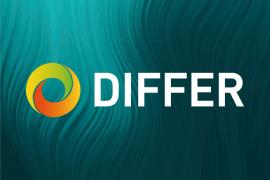The storage of intermittent solar energy in chemical bonds, i.e. Solar Fuels, is the most promising way to a future greener energy infrastructure.
DIFFER
Seminars
Seminars at DIFFER cover a wide range of topics and are held on Thursdays at 11.15 AM in the seminar room of the institute (unless otherwise stated). Seminars are open to everybody. If you are interested in visiting a DIFFER seminar or want to subscribe to our mailing list, please follow the instructions for external visitors.



